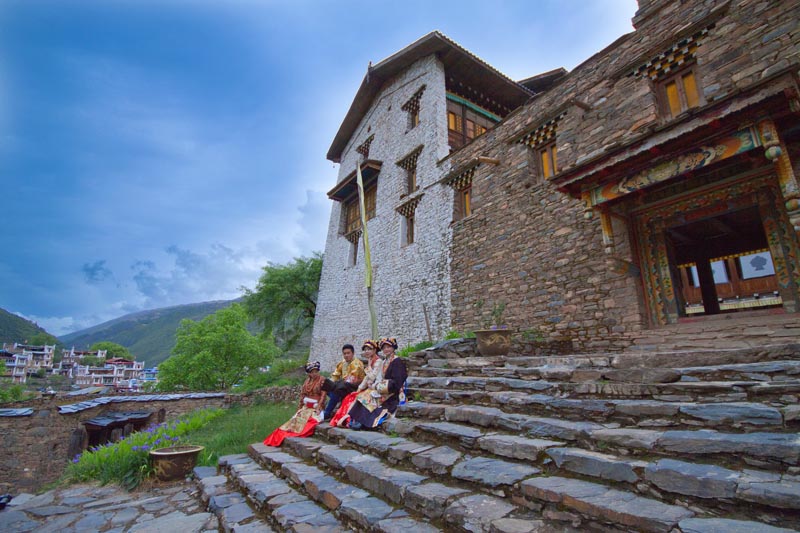Interview: Swiss-based researcher highlights "impressive development" in Tibet
Otto Kolbl, an Austrian researcher at the University of Lausanne who has traveled extensively in China, stressed during an interview with Xinhua that China's Tibetan areas have experienced "impressive development" in the past decades.
Kolbl told Xinhua in his campus office, "We should not forget that lack of development is a even greater threat to the Tibetan people."
"If the Tibetan areas cannot offer to their inhabitants the prospects of a reasonably comfortable and prosperous life, the most dynamic Tibetans will continuously be tempted to leave the region," he stressed.
According to the scholar, compared to Bolivia and some other mountainous areas to which he has traveled, the infrastructure in the Tibet region is "very impressive", which gives the area a great advantage.
"Roads and mobile phone coverage are exceptionally advanced for a region with such a low population density.
"The Chinese central government has spent huge amounts of money to achieve this, and progress is ongoing," he said.
As an example, he said, "some fifteen years ago, to get from Lanzhou, the capital of Gansu province, to Hezuo, the administrative seat of the Gannan Tibetan Autonomous Prefecture, took eight hours. Since the completion of the highway from Lanzhou to Linxia, it takes four hours."
Kolbl believed that local Tibetans are well-placed to capitalize on advantages from infrastructure improvement and from the development of their home area.
He noted that significant progress has taken place in recent years and a combination of several factors has led to the emergence of "a class of Tibetan entrepreneurs".
Kolbl explained that Tibetans have learned from the Han, Hui and other groups in China on how to engage in certain business activities where no Tibetan tradition existed in spheres such as the retail trade and tourism.
"The Chinese economy has achieved a level of development where more and more people can afford to travel for pleasure. The emerging tourism industry has channeled considerable funds to the Tibetan areas," he noted.
The Austrian researcher believes that Western media and academic researchers have a bias against the Chinese central government's policy towards Tibet and do not want to look at the facts on the ground there, by "sticking to their pre-conceived ideas".
"I recognized the Western campaign against China on the Tibet issue, especially at the end of 2007 and in 2008, and it has proven to be a disaster for Tibetans," he said.
"Tibetans never tried to build up their own independent country, and in the history no head of state ever recognized Tibet as an independent state," Kolbl added.
Your Comment
Name E-mailRelated News
-
;
-
-

-
Planting seeds of hope
Before the age of 30, Chen Qian was a restless man. After graduating from college in 1992, he landed a job as a division head at a township government - a secure, lifelong position that is often known as an "iron rice bowl" in China.
-
-
-

-
Plateau living helps Tibetan athletes achieve higher result
The performances of Tibetan athletes in endurance events have advanced significantly in recent years.
-
Based in Lhasa, Tibet Vista is a Tibet travel agency that specialized in Tibet permit, and Tibet tours for both private and group travelers at a local price!
•4 Days Lhasa City Group Tour from USD 460 •8 Days Everest Base Camp Group Tour from USD 850 •15 Days Mt.Kailash Group Tour from USD 1780 •2016 Tibet Train Tours from Beijing, Shanghai, Chengdu, Xining,etc










